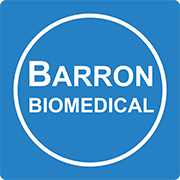Advantages for all stakeholders of the health care system
Patients, Physicians, Clinical Centers and Insurances. Advancements in the field of precision medicine can improve patient care and increase the success rate of the physicians. Furthermore, they can bring advantages to both the health care system and the co-insurers, because they can save the large number of non-effective treatments currently given to the non-responders, and therefore lower the cost/performance ratio and the overall costs per patient.
Pharmaceutical industry. The pharmaceutical industry is active in the field of precision medicine concerning the targeted therapies. In the field concerning biomarkers, in which it is less active, there are many opportunities. For example, many DNA variants can act as biomarkers for safety or efficacy and could be employed in clinical trials with great benefits:
- Biomarkers for safety could be inclusion criteria for phase I studies. This would reduce the statistically required number of participants for this phase and would increase its success rate.
- Biomarkers for efficacy could be inclusion criteria for phase II studies. This would reduce the statistically required number of participants for this phase and would increase its success rate.
- Biomarkers for efficacy could be identified among responders of phase II studies and employed as inclusion criteria for phase III studies. This would reduce the statistically required number of participants for phase III and would increase its success rate.
- Biomarkers for efficacy or safety could be employed as early indicators of response or adverse events in phases I, II and III. This would accelerate the decision for stopping or continuing a study.
These applications of biomarkers would reduce the times, costs and resources currently needed in clinical trials, and would improve the success rate of the clinical development. On the long term, they would reduce the overall costs of the pharmaceutical R&D and improve its efficiency.

